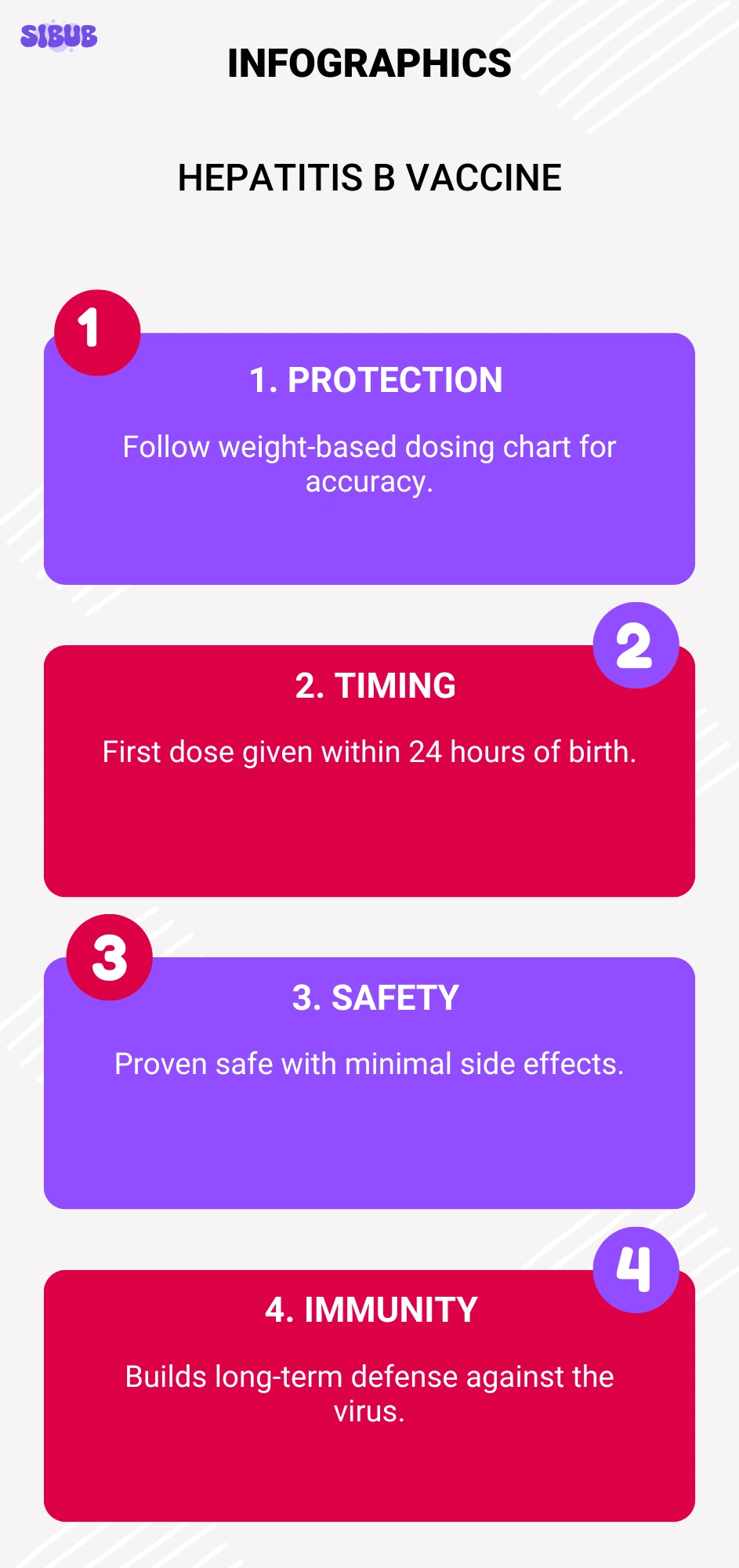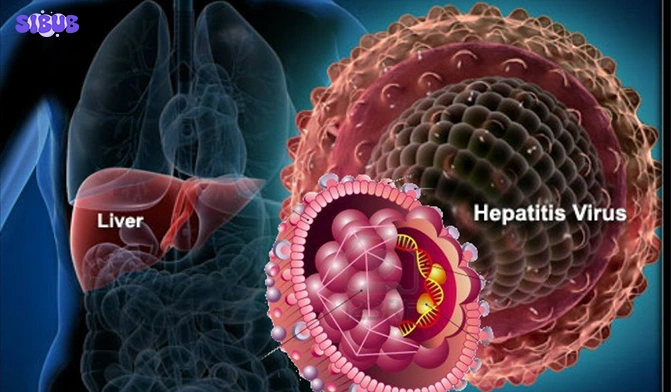Up to 95% of babies born each year with undiagnosed or late-diagnosed mother hepatitis B
They will have a chronic infection for the rest of their lives.
However, an easy vaccine given at birth lowers that risk to less than 5% and builds a strong immune system.
Get a Hepatitis B vaccine shot early.
This is the best way to keep kids from getting cirrhosis and liver cancer later in life.
Why Do Infants Get Hep B Vaccine at Birth?
It is estimated that thousands of newborns get infected with the hepatitis B virus. It happens when they are in the process of giving birth or while they are very young. Nearly ninety-five percent of infants are infected with hepatitis B.

They acquire chronic hepatitis B during the first twelve months of their lives. It is associated with an increased likelihood of developing cirrhosis. And liver cancer in later years.
The World Health Organization (WHO) and the Centers for Disease Control and Prevention (CDC) are among the global health organizations. They advocate administering the first dose of the vaccination. And within twenty-four hours after delivery. It is even before the patient is discharged from the hospital.
This is due to the fact that the maternal HBV status may be unknown, or the test results may be delayed or wrong. Early vaccination significantly reduces the risk of perinatal and horizontal transmission. It guarantees timely protection, particularly in environments where follow-up may be poor.
Is There a Vaccine for Hepatitis B and How Does It Work?
It is true that a number of recombinant hepatitis B vaccinations.
- Including Engerix-B and Recombivax-HB, as well as adult regimens.
- Such as Heplisav-B or combo vaccines like Twinrix are used extensively around the globe.
In order to activate the immune system.
- These vaccinations include pure hepatitis B surface antigen. It is opposed to the live virus.
- Additionally, an adjuvant is included in the vaccine.
When an antigen is presented by injection.
- It causes T-cells to become activated and B-cells to produce antibodies against HBs.
- Within one month of finishing the whole series. About 98 percent or more of healthy newborns have protective antibody levels.
By doing so, a memory defense is established. This swiftly responds in the event that the virus is exposed at a later time. This prevents the infection from occurring. It kills it in its chronic form or completely blocks it.
How Long Do Hepatitis A and B Shots Last?
The administration of the hepatitis B vaccine is important. It is administered during infancy. Along with continued compliance with the suggested schedule. This is often between the ages of 6 and 18 months. The vaccination has been shown to offer at least 30 years of protection in healthy persons.

This protection is accompanied by a robust cellular immunological memory. It prevents clinical illness even when levels of antibodies decrease. It is not suggested that healthy individuals have routine booster doses.
Only some populations are critical. Such as those who are undergoing dialysis. Also, newborns whose mothers have a positive Hepatitis B surface antigen. Any non-responders may be followed with antibody titers. They need reactivation against the virus.
A comparable long-lasting immunity is provided by the hepatitis A vaccine. It is inactivated HAV and given in two doses, six to eighteen months apart.
This vaccination normally gives protection for at least twenty years. It is proven by accumulating data indicating protection for thirty to forty years. Also, even forever, in the majority of people who finish the whole series.
Understanding the Hepatitis B Shot Schedule for Newborns
As part of the universal birth dose approach.
- A monovalent Hepatitis B vaccination dose should be given to all newborns.
- The best time is during the first 12–24 hours following delivery.
The vaccination is given regardless of whether or not the mother has hepatitis.
- The goal of this strategy is to avoid diseases.
- Such as both postpartum and early horizontal spreading of the Hepatitis B virus.
After that, the second dosage is given between the ages of one and two months.
The third or fourth dose is for children born prematurely.
- Including those born to mothers who are positive for HBsAg.
- It is administered at six months with a minimum age of twenty-four weeks, to finish the main series.
Even in situations when maternal testing is either unknown or delayed.
- This schedule is still very important.
- Since it is in accordance with worldwide (WHO) and United States (CDC/ACIP/AAP) advice.
Are Hepatitis B Shots Safe and Necessary for Babies?
The Hepatitis B vaccination is completely risk-free for newborns to receive. The most common adverse reactions were moderate redness. Including discomfort at the site of injection, periodic low-grade fever, or fussiness.
These reactions normally disappear within one to two days. In placebo-controlled studies, the incidence of these adverse reactions was not significantly higher. It was compared to be lower than in the other types of trials.
The HepB vaccination has not been linked to any significant consequences. Such as autism spectrum disease, neurological abnormalities. Including sudden infant death syndrome, according to any reputable research.
It is of the utmost importance. Because children who are infected during their first year. They have a chance of getting chronic HBV infection. This significantly raises the risk of getting cirrhosis. Even liver cancer over the course of their lifetime. A timely birth dosage and a series that is finished avoids more than 95% of perinatal transfer.
Vaccination for Hepatitis: Protecting Children Early On
In addition to protecting newborns from the danger of perinatal transmission at birth. The administration of the HepB vaccine is a part of normal childhood vaccination. It protects them against the risk of lateral transmission. This occurs when the baby is exposed to the virus at home. And also through communal exposures throughout infancy and early childhood.

Ninety-eight percent to one hundred percent of healthy newborns acquire excellent immunity. It is proven when the suggested schedule is followed. The protection is anticipated to persist for at least twenty to thirty years. The majority of studies imply that immunological memory is maintained throughout life. No matter if measurable antibody levels decrease later in life.
Integration of the Hepatitis B vaccine can be helpful. Earlier childhood initiatives must have been a game-changer. IT is effective in terms of lowering liver illness and mortality around the globe. This is due to the fact that the immunization is safe, effective, and has lasting effects.
Final Thoughts:
Giving babies the hepatitis B vaccine within the first 12 to 24 hours of life. Afterward, they received two or three more shots for hepatitis B. This protects them from getting infected with HBV. Also, more than 95% of the time, even if the mother’s infection status is unknown. WHO and the CDC, along with the rest of the world’s health community. Highly support a uniform birth-dose vaccine as an important “safety net.”
A lot of safety testing has shown that the vaccine is very well accepted. Also, with only mild adverse reactions like fatigue or low-grade fever. But no clear link to serious illnesses like autism or SIDS. Routine hepatitis B vaccine in babies is still one of the best. It protects them against liver disease around the world. It gives people long-lasting protection that lasts at least 20 years and probably a lifetime. For more information, visit Sibub.
